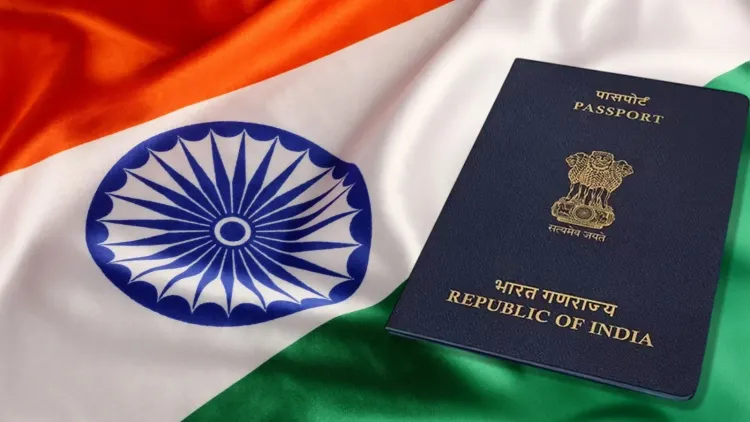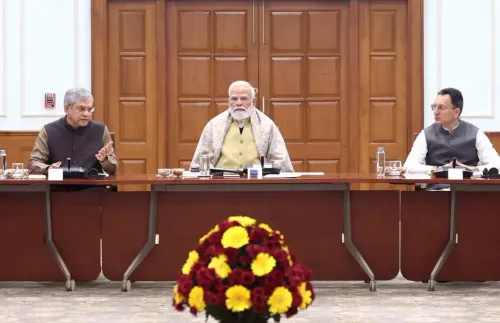How are new high-tech e-passports enhancing security in India?

Synopsis
Key Takeaways
- Launch of e-passports in 13 cities in India.
- Integration of RFID technology for enhanced security.
- Use of Public Key Infrastructure for data protection.
- Transition to e-passports is not mandatory.
- All existing passports remain valid until expiration.
New Delhi, May 13 (NationPress) - India has officially launched the initial phase of its innovative e-passport program in 13 cities, merging cutting-edge electronic technology with the conventional paper passport to bolster identity verification and enhance travel document security.
The Ministry of External Affairs (MEA) reported that this initiative commenced as a pilot project alongside the Passport Seva Programme (PSP) Version 2.0, which started in April of the previous year.
The MEA noted that this marks the first phase of a comprehensive rollout expected to extend to all Passport Seva Kendras nationwide by mid-2025.
The e-passports are being made available in various cities, including Nagpur, Bhubaneswar, Jammu, Goa, Shimla, Raipur, Amritsar, Jaipur, Chennai, Hyderabad, Surat, Ranchi, and Delhi.
Notably, Tamil Nadu began issuing e-passports as of March 3, 2025, at the Chennai Regional Passport Office, and by March 22, 2025, had issued 20,729 e-passports.
These advanced passports can be easily distinguished from standard ones, as they feature a gold-colored symbol below the front cover.
Internally, they are equipped with an embedded Radio Frequency Identification (RFID) chip and antenna within the inlay.
The implementation of Public Key Infrastructure (PKI) is a vital component, ensuring the secure storage of biometric and personal data while verifying its accuracy and authenticity.
The MEA emphasized that a key benefit of e-passports is their enhanced data protection capabilities.
This sophisticated technology helps maintain the integrity of the holder's information, drastically lowering the risk of tampering or identity forgery.
It also addresses the rising concern regarding the fabrication of fake passports, a significant challenge during International Border surveillance.
While the launch of e-passports represents a significant advancement in passport modernization, the MEA clarified that transitioning to the new format is not compulsory.
All existing passports issued by the Government of India will remain valid until their respective expiration dates.










